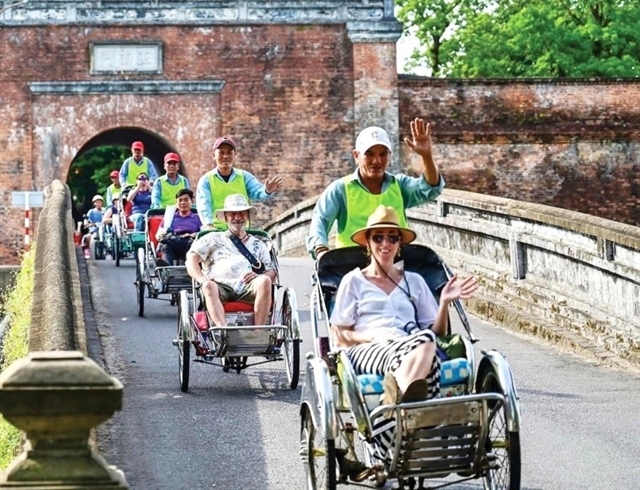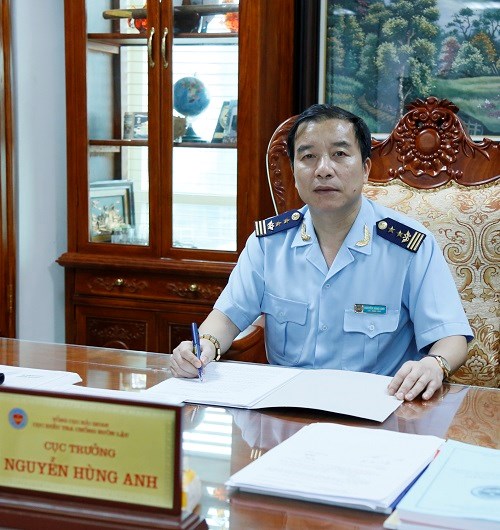 Society
Society


|
| Nguyễn Hùng Anh, director of the Anti-smuggling Investigation Department |
Nguyễn Hùng Anh, director of Anti-smuggling Investigation Department under the General Department of Vietnam Customs, talks to Tạp chí tài chính (Finance Magazine) about the sector’s efforts to fight trade fraud and smuggling
What’s the current situation with smuggling, trade fraud and illegal transport of goods across the border and what has been done to prevent it?
The number of cases relating to smuggling and trade fraud detected over the past nine months decreased compared to the same period last year due to the COVID-19 pandemic.
However, there have been complicated developments regarding trade fraud and counterfeit goods all over the country using sophisticated tricks. Smuggling rings have been set up to facilitate the illegal transportation of prohibited goods, goods with high tax rates or those requiring specialised management licences which affect people’s health.
The Anti-smuggling and Investigation Department has worked with the national steering committee against smuggling, trade fraud and counterfeit (Steering Committee 389) to prevent and fight smuggling, whilst successfully uncovering many smuggling spots and groups.
Specifically, in the first 8 months of 2020, the customs sector discovered and handled 11,008 cases worth nearly VNĐ2 trillion (US$86.3 million). The sector has launched legal proceedings against 25 criminal cases and transferred 76 cases to other agencies. More than VNĐ443.4 billion was contributed to the State Budget during the period.
Could you tell us about some of the cases that have been detected by customs forces over the past eight months?
Regarding the illegal transportation of drugs, in the first eight months of this year, the customs sector detected 158 cases and arrested 130 suspects. It seized more than 132kg of heroin, 15kg of marijuana, 15.7kg of opium, 22.4kg and 375,000 synthetic pills and 518.8kg of meth.
In most drug trafficking cases, the criminals use sophisticated measures. For example, on September 9, Cầu Treo International Border Gate customs sub-department worked with border guards and related agencies to uncover 98kg of drugs hidden in five wooden statues. A tracking device had been installed inside the statues to monitor their location.
On July 18 and July 30, the Anti-smuggling Investigation Department bust a trafficking ring that was transporting drugs from Cambodia to southern provinces for sale. About 160kg of meth, ecstasy, ketamin and heroin were hidden in stone construction blocks.
Origin fraud for export in order to evade trade remedies in importing countries has remained rife, with tricks such as mixing imported goods and labelling them as made in Việt Nam for export, or working with domestic agencies and organisations to illegally issue certificates of origin (C/O) for businesses which want to export goods.
The incident related to Đại Minh Việt Inspection Joint Stock Company was one of the most prominent cases. The company took advantage of being a member of Vietnam Chamber of Commerce and Industry (VCCI) to issue 392 C/O for 33 enterprises including a number of foreign-invested firms.
The total value of exported goods was estimated to be worth over VNĐ600 billion. This is a new trick detected for the first time in Việt Nam.
What are the challenges the sector faces in the fight against smuggling, trade fraud and illegal transportation of goods across the border?
The customs sector faces many difficulties including the handling of violations.
Due to some problems relating to the authorisation of administrative punishments, a number of violations haven’t been dealt with in a timely manner.
For example, in accordance with current regulations, the director of the customs department is authorised to seize goods worth less than VNĐ50 million from an individual and VNĐ100 million from an organization. However, customs agencies deal with many cases worth more than VNĐ100 million, so they have to be transferred to authorities at a higher level.
Similar problems also occur when it comes to investigations.
Under current regulations, the customs sector is assigned to conduct investigations into criminal cases relating to smuggling, illegal transportation of goods and currency across the border; and producing and trading prohibited goods. However, while exercising its duties, the sector also uncovers other crimes that are beyond its remit, including tax avoidance, money laundering and infringements of intellectual property rights. It takes a long time for the sector to transfer these to other agencies, affecting the efficiency of the investigations.
What should be done to improve the efficiency in the fight against smuggling and trade fraud?
In order to improve capacity and efficiency in the fight against smuggling, trade fraud and illegal transportation of goods across the border, the customs sector will focus on implementing the following key tasks:
Firstly, the sector will facilitate import and export activities, while ensuring customs controls are implemented.
Secondly, it will set up plans to control the illegal transport of goods across the border, trade fraud and contraband goods relevant to each locality.
Thirdly, the sector will continue modernising facilities and training personnel. It is necessary for the sector to fully apply information technology in the inspection and supervision process to proactively prevent and eliminate causes and conditions for crime.
Fourthly, it will proactively coordinate with relevant forces and local authorities to detect smuggling, illegal transportation of goods across the border, trade fraud and counterfeit goods. All violations should be strictly dealt with. — VNS




